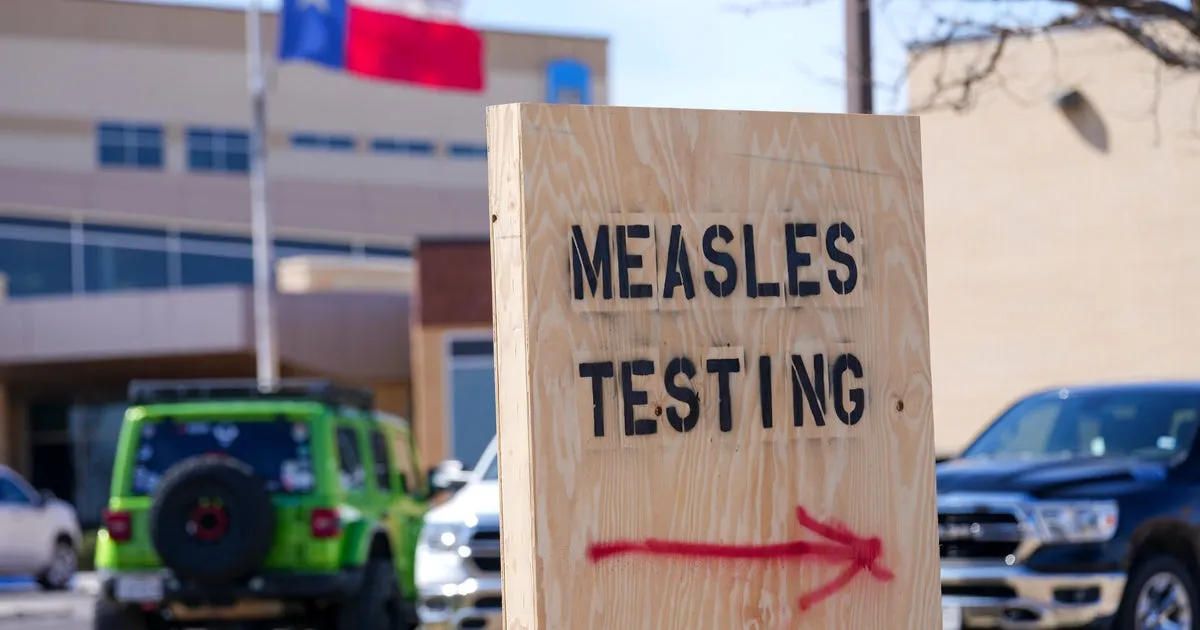
This year, the United States has seen an alarming increase in measles cases, with more reported instances than in any other year since the disease was declared eliminated 25 years ago. As of Monday, a total of at least 1,277 cases have been documented, surpassing the previous record of 1,274 cases set in 2019, despite the fact that we are only halfway through 2023. This significant data was released by the Johns Hopkins Bloomberg School of Public Health’s U.S. Measles Tracker.
Researchers attribute this surge in measles cases primarily to “long-standing gaps in measles vaccine coverage.” They highlighted that nearly all of the cases reported this year—around 92%, according to the Centers for Disease Control and Prevention (CDC)—involve individuals who are unvaccinated or whose vaccination status is unknown. William Moss, the executive director of the International Vaccine Access Center at Johns Hopkins, warned that “the U.S. is at risk of losing its measles elimination status should cases continue at this rate.” He emphasized the critical need for vaccination to combat this outbreak and prevent future occurrences.
There has been a noticeable decline in vaccination rates in recent years. Among U.S. kindergarteners, the coverage rate fell from 95.2% to 92.7% during the 2023–2024 school year. The CDC states that a vaccination rate of 95% or lower increases the risk of localized outbreaks because community immunity, or herd immunity, requires vaccination rates to exceed 95%. This year, approximately 88% of confirmed cases are linked to one of 27 known outbreaks, a stark contrast to the 16 outbreaks reported in 2024, which accounted for 69% of that year’s 285 confirmed cases.
Measles was declared eliminated from the U.S. in 2000, a milestone attributed to a successful vaccination program and improved measles control in the Americas. This achievement, characterized by no continuous transmission for over 12 months, was recognized as one of public health's greatest victories. However, the resurgence of cases raises serious concerns about the country possibly losing its elimination status.
Health and Human Services Secretary Robert F. Kennedy Jr. has provided inconsistent support for the measles, mumps, and rubella (MMR) vaccine and has promoted untested treatments for the disease. In April, he inaccurately claimed that the MMR vaccine has not been “safely tested” and that its protective effects are short-lived. Kennedy has a history of being a vocal anti-vaccine activist, which adds to the complexities surrounding public perceptions of vaccination.
The last time the U.S. faced the threat of losing its measles elimination status was in 2019, when outbreaks—particularly in New York—led to over 1,274 reported cases. The following year saw a dramatic drop to just 13 cases, coinciding with the onset of the coronavirus pandemic. Despite the current rise in cases, measles is still classified as eliminated in the U.S., a distinction that differs from eradication.
Most concerning is that a significant number of cases this year have been concentrated in Texas, where two school-aged children tragically died while living in outbreak areas. Both children were unvaccinated and reportedly had no known underlying health conditions, according to the state’s health department.
The ongoing rise in measles cases emphasizes the urgent need for increased vaccination efforts and public education to restore confidence in immunization. The health of communities across the U.S. depends on overcoming vaccine hesitancy and ensuring high vaccination coverage to prevent further outbreaks.